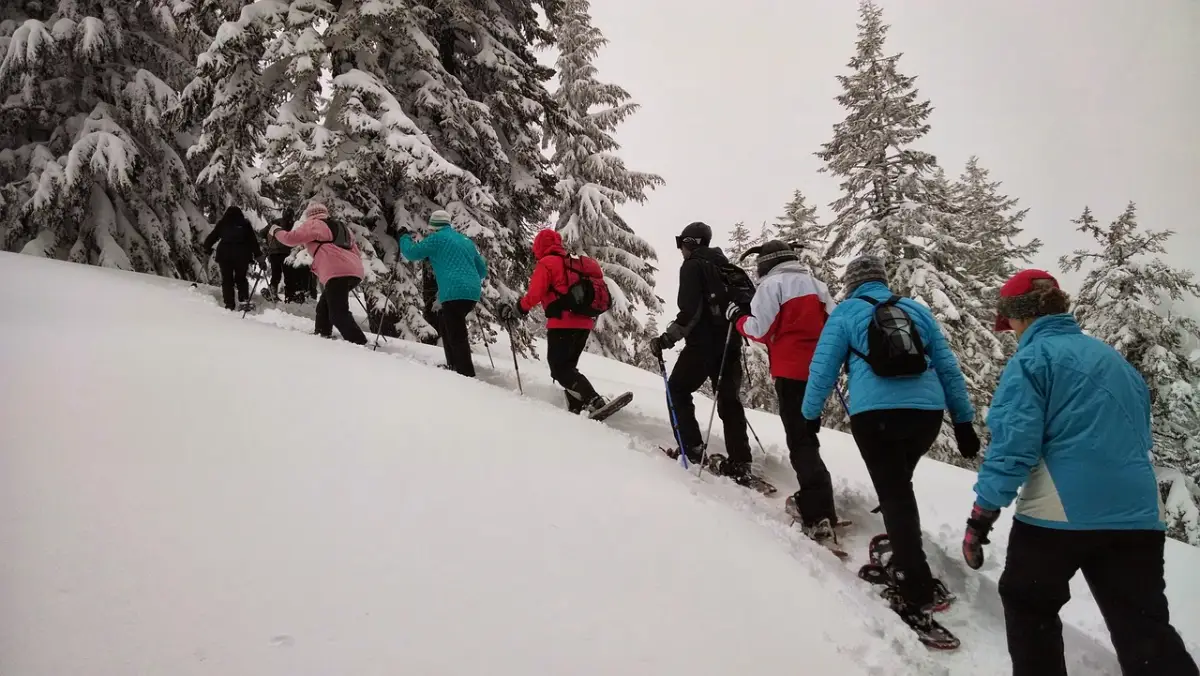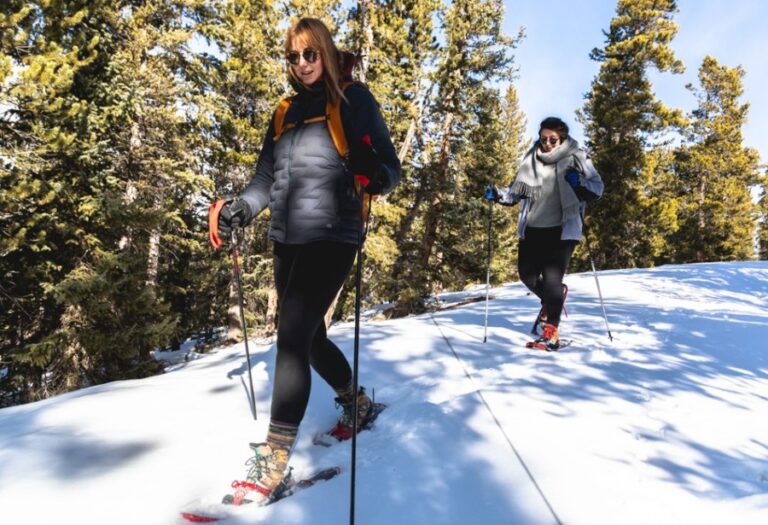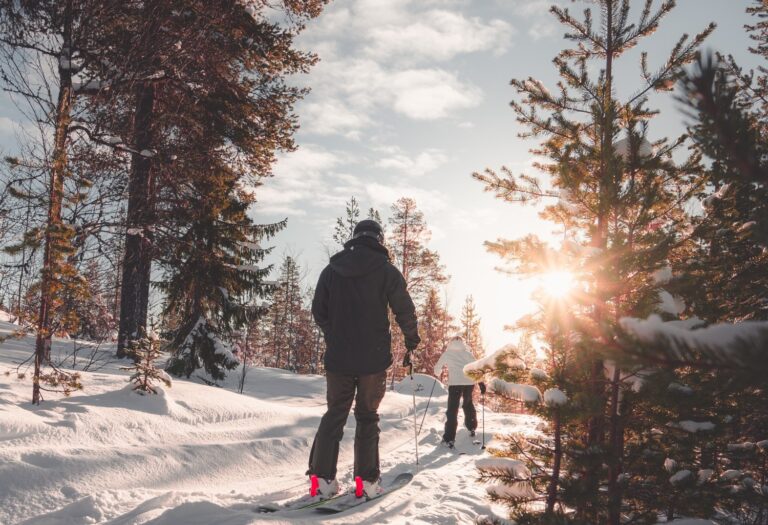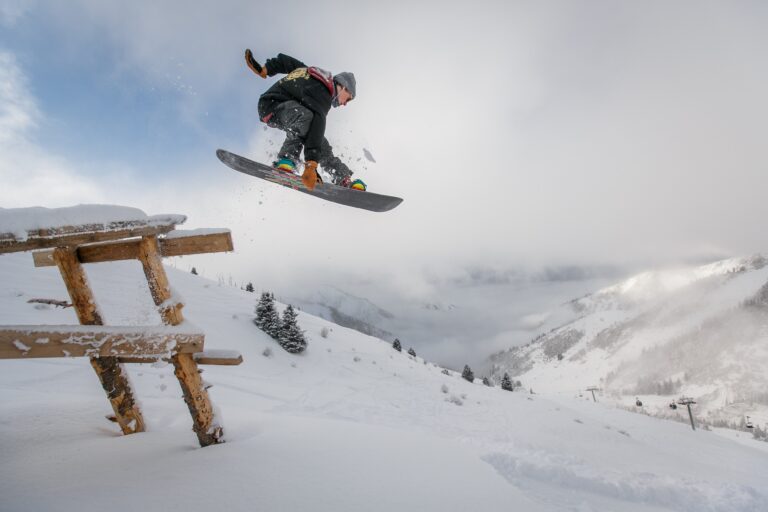Snowshoeing is Good Exercise
Snowshoeing might not be the first activity that comes to mind when you think of exercise, but this underrated winter sport is a fantastic way to stay active, explore the great outdoors, and maintain your fitness—even in the coldest months.
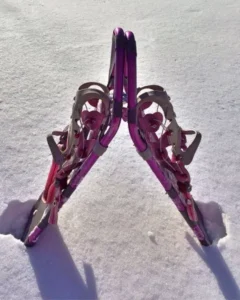
Whether you’re new to snowshoeing or looking for ways to enhance your winter workout routine, here’s everything you need to know about why snowshoeing is great exercise and how you can get started.
Why Snowshoeing is a Great Workout
Total-Body Engagement
Snowshoeing isn’t just about walking through the snow—it’s a full-body workout. The added resistance of walking in snow works your legs, glutes, and core. If you’re using poles, you’ll also engage your upper body and arms, making it a great exercise for improving overall muscle strength and endurance.
Cardiovascular Benefits
Snowshoeing is a form of aerobic exercise that gets your heart pumping and your blood flowing. The uneven terrain and resistance from the snow elevate your heart rate, helping to improve cardiovascular health and endurance. According to experts, snowshoeing burns approximately 420 to 1,000 calories per hour, depending on intensity and terrain—more than you’d burn walking or running on flat ground.
Low-Impact, Joint-Friendly Exercise
Unlike high-impact activities like running, snowshoeing is gentle on the joints, making it a great choice for people recovering from injuries or those with joint pain. The soft snow absorbs impact, reducing strain on knees and ankles while still providing an effective workout.
Mental Health Boost
Exercise in nature has been shown to reduce stress, improve mood, and boost mental clarity. Snowshoeing allows you to immerse yourself in serene winter landscapes, offering the added benefits of fresh air and beautiful scenery.
How to Get Started with Snowshoeing
Choose the Right Gear
Snowshoeing requires minimal equipment, but having the right gear is essential. Here’s what you’ll need:
- Snowshoes: Choose snowshoes based on your weight, the terrain, and snow conditions.
- Poles: While optional, poles can help with balance and provide an upper-body workout.
- Proper Footwear: Waterproof boots with good insulation are a must to keep your feet warm and dry.
- Clothing: Dress in layers with moisture-wicking fabrics, a warm insulating layer, and a waterproof outer layer.
Find the Right Trail
Start with easy, flat trails if you’re a beginner. Many parks and outdoor recreation areas offer marked snowshoeing trails of varying difficulty. As you gain confidence and endurance, you can explore more challenging terrains.
Learn Basic Techniques
Snowshoeing is relatively intuitive, but there are a few basic techniques to keep in mind:
- Take slightly wider steps to avoid stepping on your snowshoes.
- Use your poles to help with balance and to push uphill.
- Keep a steady pace to avoid overexertion, especially at higher altitudes.
Start Slow and Build Up
If you’re new to snowshoeing, start with short outings to allow your body to adjust. Over time, you can increase the duration and intensity of your treks to match your fitness level.
Tips for Making Snowshoeing More Effective
- Interval Training: Incorporate short bursts of speed or uphill climbs into your trek to boost calorie burn and cardiovascular benefits.
- Challenge Yourself: Gradually explore more rugged terrains to engage different muscle groups and improve endurance.
- Stay Hydrated and Fueled: Cold weather can mask thirst, so make sure to drink plenty of water and bring snacks to maintain your energy levels.
FAQ: Everything You Need to Know About Snowshoeing
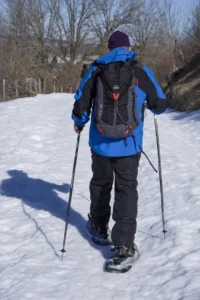
Snowshoeing is more than just a way to explore snowy landscapes—it’s an incredible workout that strengthens your body, boosts your cardiovascular health, and enhances your mental well-being. Whether you’re a fitness enthusiast or simply looking for a fun way to stay active during the winter months, snowshoeing offers an accessible and rewarding way to embrace the outdoors. So grab your snowshoes, hit the trail, and enjoy the many benefits this winter workout has to offer!

